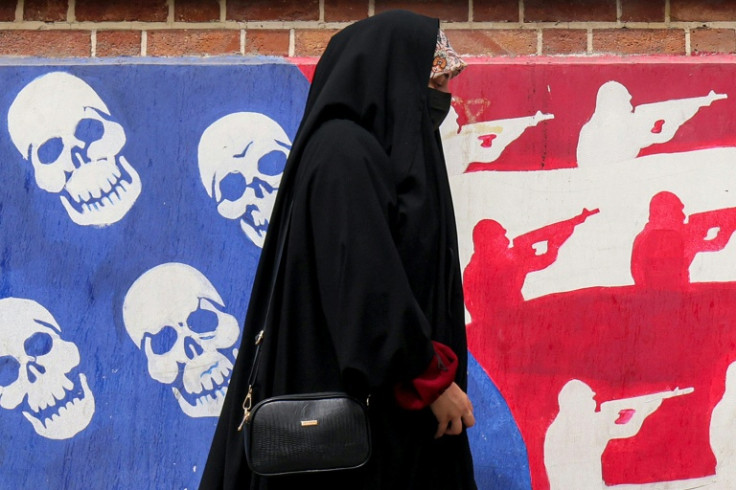Iran, US Raise Stakes Ahead Of Key Talks In Oman

Washington and Tehran waged a war of words Thursday ahead of key talks in Oman after US President Donald Trump said military action was "absolutely" possible if the talks fail.
A senior adviser to supreme leader Ayatollah Ali Khamenei warned that Iran could expel UN nuclear watchdog inspectors over "threats" ahead of Saturday's talks.
Rear Admiral Ali Shamkhani's comments came after US Trump Wednesday failed to rule out military action against Iran in the event the planned talks fail to produce a deal.
"The continuation of external threats and Iran being in a state of military attack may lead to deterrent measures, including expulsion of inspectors from the International Atomic Energy Agency and cessation of cooperation," Shamkhani said on X.
"Transfer of enriched materials to secure locations may also be considered," he added, referring to the country's uranium enrichment.
In Washington, State Department spokeswoman Tammy Bruce warned Iran against making a misstep.
"The threat of that kind of action, of course, is inconsistent with Iran's claims of a peaceful nuclear programme," she told reporters.
"Also, expelling IAEA inspectors from Iran would be an escalation and a miscalculation on Iran's part."
Iranian Foreign Minister Abbas Araghchi is due to meet US Middle East envoy Steve Witkoff in the Gulf sultanate on Saturday for the talks that Washington has presented as the last chance for a peaceful resolution of Western concerns about Iran's nuclear programme.
Iran has consistently denied seeking to acquire nuclear weapons.
US Secretary of State Marco Rubio voiced hope Thursday that the US-Iran nuclear talks in Oman this weekend could lead to "peace".
"We hope that will lead to peace," Rubio told a meeting of Trump's cabinet. "We're hopeful about that."
Last month, Trump sent a letter to Khamenei, who has the final say in matters of state in Iran, calling for direct negotiations but warning of military action if the diplomacy fails.
"If necessary, absolutely," Trump told reporters Wednesday when asked if military action was an option.
"If it requires military, we're going to have military. Israel will obviously be very much involved in that, be the leader of that," Trump said.
On Wednesday, the United States announced new sanctions targeting Iran's nuclear programme ahead of the talks between the longtime adversaries.
In a mainly symbolic move, the US Treasury Department said it was imposing sanctions under additional authorities on five entities including the Atomic Energy Organisation of Iran and one individual.
On Thursday, the US State Department said it was imposing sanctions on Iran's oil network under Trump's policy of "maximum pressure" against the country.
Washington already enforces sweeping sanctions on Iran, particularly its nuclear programme whose scientists have also been the target of an assassination campaign attributed to Israel.
Iran maintains that it is against direct negotiations with its arch-enemy the United States, but has left the door open for indirect talks.
In 2015, Iran reached a landmark nuclear deal with major powers that gave it relief from international sanctions in return for restrictions on its nuclear activities monitored by UN inspectors.
But in 2018, during Trump's first term in office, the United States withdrew from the agreement and reinstated biting sanctions on Iran.
A year later, Iran began rolling back on its commitments under the agreement and accelerated its nuclear programme.
© Copyright AFP 2024. All rights reserved.




















